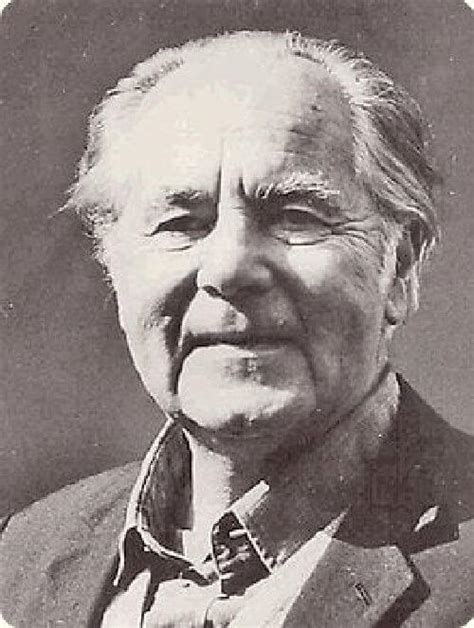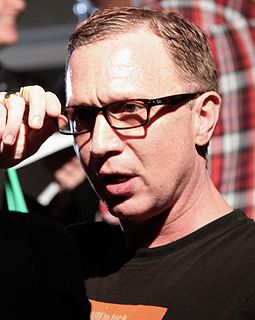A Quote by Ludwig von Mises
Reason's biological function is to preserve and promote life and to postpone its extinction as long as possible. Thinking and acting are not contrary to nature; they are, rather, the foremost features of man's nature. The most appropriate description of man as differentiated from nonhuman beings is: a being purposively struggling against the forces adverse to his life.
Related Quotes
But nature - that is, biological evolution - has not fitted man to any specific environment. On the contrary, ... he has a rather crude survival kit; and yet -this is the paradox of the human condition - one that fits him to all environments. Among the multitude of animals which scamper, fly, burrow and swim around us, man is the only one who is not locked into his environment. His imagination, his reason, his emotional subtlety and toughness, make it possible for him not to accept the environment but to change it.
Here and there awareness is growing that man, far from being the overlord of all creation, is himself part of nature, subject to the same cosmic forces that control all other life. Man's future welfare and probably even his survival depend upon his learning to live in harmony, rather than in combat, with these forces.
We declare that only man exists. This is not to say that material, inorganic nature and nonhuman beings-animals and plants-are in any sense unreal, insubstantial, or illusory because they do not so exist. We merely state that the reality of these nonhuman realms differs from that of human existence, whose primary characteristic is Da-sein (literally being-the-there)... Man as man is present... in a manner wholly different from... inanimate things.
Nature is man's inorganic body -- that is to say, nature insofar as it is not the human body. Man lives from nature -- i.e., nature is his body -- and he must maintain a continuing dialogue with it is he is not to die. To say that man's physical and mental life is linked to nature simply means that nature is linked to itself, for man is a part of nature.
It is altogether unlawful to kill oneself... Wherefore suicide is contrary to the inclination of nature, and to charity whereby every man should love himself... Life is God's gift to man, and is subject to His power, Who kills and makes to live. Hence whoever takes his own life, sins against God... for it belongs to God alone to pronounce sentence of death and life.
How very seldom do you encounter in the world a man of great abilities, acquirements, experience, who will unmask his mind, unbutton his brains, and pour forth in careless and picturesque phrase all the results of his studies and observation; his knowledge of men, books, and nature. On the contrary, if a man has by any chance an original idea, he hoards it as if it were old gold; and rather avoids the subject with which he is most conversant, from fear that you may appropriate his best thoughts.
Secondly, man sins against nature when he goes against his generic nature, that is to say, his animal nature. Now, it is evident that, in accord with natural order, the union of the sexes among animals is ordered towards conception. From this it follows that every sexual intercourse that cannot lead to conception is opposed to man's animal nature.
In terms of homosexuality, not everyone is prepared for a daily struggle against nature. In some ways, people who challenge and subvert their biologically-determined body are struggling against nature. It's a mysterious combination of nature and nurture that determines a person's gender, and for whatever reason some people are driven to challenge their biological "destiny". It's a difficult struggle, and I believe it takes a lot of courage.
Man is not by any means of fixed and enduring form (this, in spite of suspicions to the contrary on the part of their wise men, was the ideal of the ancients). He is nothing else than the narrow and perilous bridge between nature and spirit. His innermost destiny drives him on to the spirit and to God. His innermost longing draws him back to nature, the mother. Between the two forces his life hangs tremulous and irresolute.
We still talk in terms of conquest. We still haven't become mature enough to think of ourselves as only a tiny part of a vast and incredible universe. Man's attitude toward nature is today critically important simply because we have now acquired a fateful power to alter and destroy nature. But man is a part of nature, and his war against nature is inevitably a war against himself.
The very nature of the quantum theory ... forces us to regard the space-time coordination and the claim of causality, the union of which characterizes the classical theories, as complementary but exclusive features of the description, symbolizing the idealization of observation and description, respectively.
We must realise that man's nature will remain the same so long as he remains man; that civilisation is but a slight coverlet beneath which the dominant beast sleeps lightly and ever ready to awake. To preserve civilisation, we must deal scientifically with the brute element, using only genuine biological principles.


































